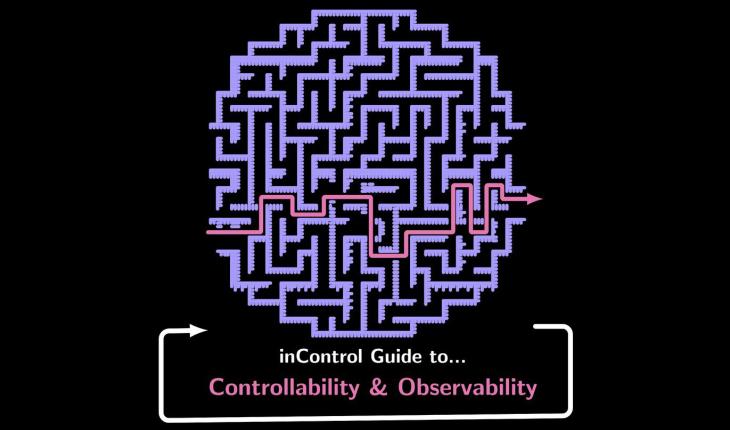#NCCRWomen: Clara Galimberti
Why did you choose a scientific career?
I’d say it was mainly because I like the “whys”, meaning understanding why things work as they do. This is what probably has led me to a technical high school and to decide which topics I wanted to study at university.
However, there is a moment when one must decide which scientific path to follow. It was the things I learnt at school which helped me to decide. In my high school, on top of the core subjects, there were courses on electronics, control, programming or energy technology. As you may imagine, they were all introductory courses, but for me, they were enough to motivate my choice of electronic engineering.
If you weren't a scientist, what would you be?
I’ve always imagined myself in a scientific career. When I was young, scientific topics including mathematics, physics and their applications to engineering seemed easier to me: there are some basic blocks and new facts that can be derived in a provable way from previous knowledge. In that time, I felt that other subjects I had were more based on memorization and thus not that appealing to me.
If I had to think another carrier path I could have followed, I can think of two answers. On the one hand, I’d guess I could have been a teacher; however, it would still be math- or science-related. On the other hand, if I hadn’t chosen a scientific path, I may have ended up doing sports, probably first competing and for sure then also teaching. I’ve practiced many sports, however the one I like the most is rowing. In any case, while a teenager, there was a moment when I had to choose how much time to dedicate to it. I realised I was not going to have the time to train full-time if I wanted to keep up with my “scientific activities” - at that point I was already participating in math and science Olympiads at school.
Rowing remained a hobby of mine. I keep practicing it, currently at the UNIL-EPFL sport center.
In simple language, explain what you do for your NCCR.
Currently, my focus lies in developing algorithms and artificial neural network architectures that ensure reliable control of complex systems. By reliable, I’m referring to ensuring basic properties of the controlled system, such as stability.
For example, consider a robotic arm that needs to move an object from one location to another. This might seem like a deceptively simple task (for a human), however, it involves addressing several challenges. For instance, can we ensure the object is placed at the correct target location? What is the optimal path to take? If we think that the robot is not isolated but it operates in a shared environment with many other robots, how can we avoid any collision between them or with the surroundings? Our goal is to provide algorithms that can take care of these aspects. In my case, to address these challenges, we combine techniques from computer science and machine learning, with well-established principles and guarantees from control theory.
What does your typical day at work look like?
I come in the lab around 9am, to my office shared with other PhD students. Often, I find myself reading a lot of papers about related works, which helps me to get an insight into what other people are doing, on which problems they are working, and which kind of solutions they are proposing. Other times, I’m just with a pen and a piece of paper trying to improve algorithms, to design new variants or to prove some of their properties. Usually, we need to validate or verify these algorithms experimentally. Thus, there is also some time dedicated to coding and running numerical experiments on the computer.
For all the activities that I’ve just mentioned, it’s important to highlight that I don’t do them all by myself. We are a group of people working on similar projects and it is always very helpful for me to discuss or to ask my colleagues when I have doubts. We also have meetings with my supervisor and colleagues where we discuss the progress and advances of the current projects, and we brainstorm on suitable next steps for continuing and improving them.
As a PhD student, I also take some PhD courses and assist teaching in some courses for bachelor or master students. I enjoy these teaching duties since it helps me to improve my communication capabilities. For me, the challenge is to being able to explain concepts that I already know in a concise, simple, and clear way.
At midday, I usually have lunch together with some colleagues, somedays in the cafeteria or, if the weather is nice, we may go to the lab’s terrace.
What do you like to do outside the lab?
You may find me rowing on Lake Geneva!
Who was your mentor or role model who inspired you?
I think that there was not a unique person that inspired me. I could start with my parents, both engineers. I’m sure that sometimes in a conscious way and many times in an unconscious way, they were here to motivate my curiosity towards science.
Then at school, I should also highlight some of the teachers that motivated us to participate in extra-curricular activities. Those teachers usually spent part of their time organizing or preparing us for these activities. It was easy to see the passion they were putting into them.
Finally, I also think of two professors at university. Both very engaged in the course they teach and our (students’) learnings. But most importantly, they were approachable people with an impressive career. They would patiently stay after lectures until all questions were solved and sometimes talk about their complex research projects in a comprehensible way for undergrad students. They would also be there to discuss how these topics were being applied to industry and point out some of the key industries in the market.
Overall, I think that role models for me were people I’d see on a regular basis which at the time I approached them, I thought an «endless» source of knowledge was emanating from them.
What was the best or worst advice you ever got?
The worst piece of advice I got was a message like:
« As an electronic engineer, finding a job outside academia is very difficult. Companies don’t like women. They get pregnant, they have to raise their children, and then they are not available for travelling and visiting the different factories of the company. »
This was from an esteemed teacher, and Electronic Engineer, during the last year of high school. What surprised me the most was that the person saying this was a woman. Back then, I already knew women working in the industry at a workplace they enjoy and my teacher was close to retirement. I could imagine that during her time it was much harder, yet her words were not encouraging.
We are sharing profiles of women researchers within NCCR Automation as part of the #NCCRWomen campaign. You can find out more about the campaign on YouTube, Twitter or Instagram.


